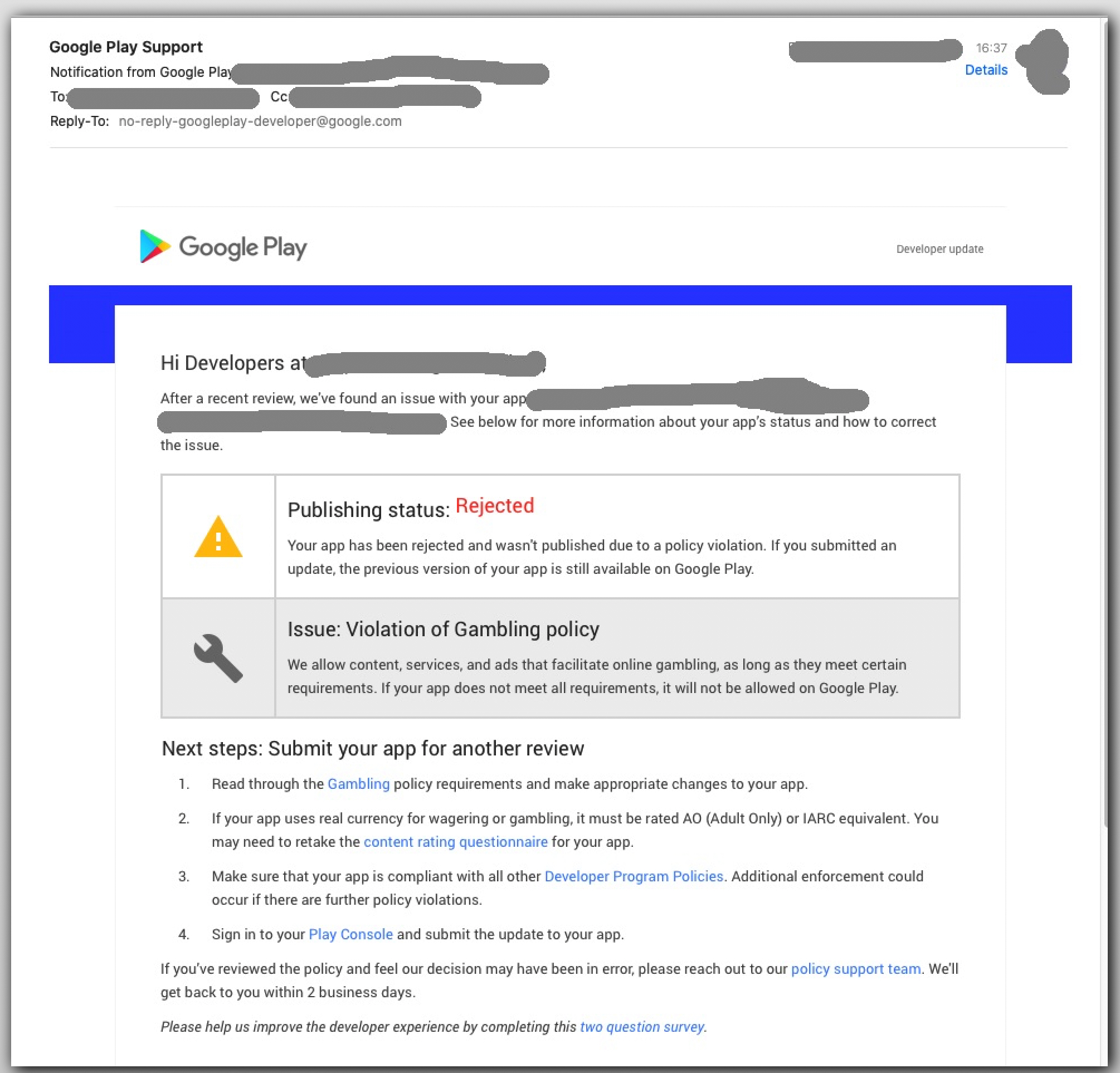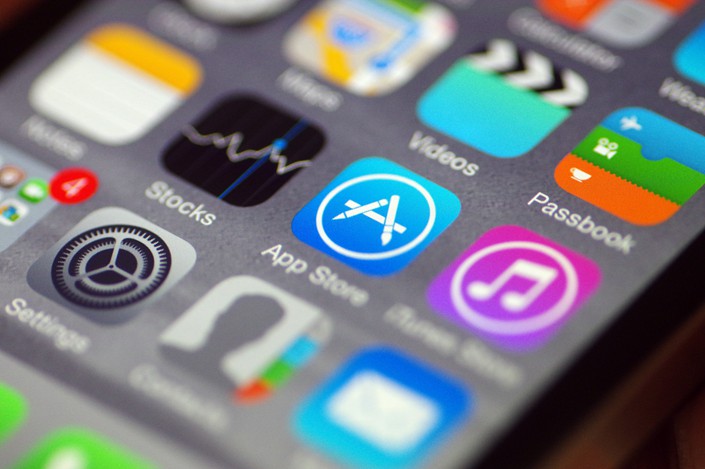Apple App Store Gambling Policy
- Apple App Store Gambling Policy Online
- Apple App Store Gambling Policy 2019
- Apple App Store Gambling Policy Free
- Apple App Store Gambling Policy Template
Apple has been hit with a lawsuit alleging that free-to-play games on the App Store that feature in-game currency constitute illegal gambling.
Apple’s removal of gambling apps from the App Store seems to have started after there was an outbreak of iMessage spam in China pointing users to illegal gambling apps on the App Store. Since iMessage apps are encrypted, Apple is not able to filter out such messages due to which the company has heavily criticised by the Chinese state media. The tech giant would not confirm reports suggesting it had pulled 25,000 apps, but in a statement the firm said 'gambling apps are illegal and not allowed on the App Store in China'.
Apple has reportedly removed 25,000 gambling apps from its App Store in China that flouted the local Internet policies. In a statement given to The Wall Street Journal on Monday, the Cupertino-based iPhone maker said 'gambling apps are illegal and not allowed on the App Store in China'. State broadcaster CCTV, which last month reported that Apple's app store allowed illegal gambling apps disguised as official lottery apps, said Sunday that 25,000 apps had been removed. Apple said in a statement: Gambling apps are illegal and not allowed on the App Store in China. We have already removed many apps and developers for trying to. Apple App Store Gambling When the limit has been reached you Apple App Store Gambling will get a message which informs you that your loss limit has been reached and you will Apple App Store Gambling not be able to place any further bets. You will be able to review these settings should your occupation and amount change.
The lawsuit, lodged Thursday in the U.S. District Court for the District of Connecticut, claims that Apple 'promotes, enables, and profits' from gambling games on the App Store.
For example, the plaintiff in the case, Karen Workman, says she downloaded an app called 'Jackpot Mania' in 2017, and 'began purchasing coins through the app so he/she could continue to play for a chance to win free coins that would enable him/her to enjoy the game(s) for a longer period of time.'

In the six months before filing the suit, Workman spent $3,312.19 on in-game coins, the lawsuit adds.
Although gambling apps are banned on the App Store, the complaint argues that apps with in-game currency still fall under the 'gambling' category because users 'have the ability to win and therefore acquire more playing time.'
Furthermore, it argues that credits which are 'recorded and allow one to extend play' are a thing of value. 'The apps at issue record credits and allow the player to save them up and play later,' the complaint reads, before accusing the App Store of hosting apps that violate Connecticut's gambling statutes.
'Apple is not some minor or incidental participant in these illegal gambling games. It is the principal promoter and facilitator of the illegal activity. Apple maintains dictatorial control over what apps can be downloaded from the App Store, and the payment method to purchase in-app items,' the complaint reads.

The lawsuit, which is seeking class status, also asks for a refund of 'all money paid through the illegal gambling games described herein,' attorneys' fees; and an award for the plaintiff for 'his/her services in this case on behalf of the class.'

AppleInsider has affiliate partnerships and may earn commission on products purchased through affiliate links. These partnerships do not influence our editorial content.
Apple’s easily abused Enterprise Certificate program isn’t just enabling snoopy Facebook and Google apps. It’s also being exploited by at least a dozen hardcore porn apps and a dozen gambling apps.
Apple App Store Gambling Policy Online
Last week, Facebook’s Research app – that paid people, including teens, to install a Virtual Private Network (VPN) app that planted a root certificate on their phones to get access to traffic from other apps – got the boot from Apple. The Research app was created under Apple’s Enterprise Certificate program, a way of creating non-App Store apps that are used for “specific business purposes” and “only for use by your employees” …not by consumers whose data Facebook was sucking up.
Within hours, Google found itself apologizing for doing something similar.

Now, it’s apparent how easy it is to use enterprise certificates to avoid the App Store’s content policies prohibiting apps that show “explicit descriptions or displays of sexual organs or activities intended to stimulate erotic rather than aesthetic or emotional feelings.”
According to Tech Crunch, the developers behind the gambling and porn apps have either passed what it calls Apple’s “weak” Enterprise Certificate screening process or piggybacked onto a legitimate approval.
Apple was swift to react when Tech Crunch broke the news about Facebook’s and Google’s “clear breach” of its certificate policies. After briefly revoking the companies’ certificates (for all apps, including those that were, per Apple’s policy, used by employees), Apple has over the past few days gone on a bit of an app-disabling spree. Some of the dozens of porn and gambling apps that Tech Crunch initially found have vanished in the process.
As of Tuesday, still-functioning porn apps included Swag, PPAV, Banana Video, iPorn (iP), Pear, Poshow and AVBobo, and the gambling apps still available included RD Poker and RiverPoker. As of Wednesday, Banana Video, for one, was still hanging in there.
Apple App Store Gambling Policy 2019
How ‘iPorn’ et al. get enterprise certificates
All developers have to do to get an enterprise certificate is to fill out an online form, fork over $299, hand over an easily found D-U-N-S business ID number (Apple provides a tool to look it up) and business address, and use an up-to-date Mac. Tech Crunch’s Josh Constine even found these step-by-step directions on how to get an Apple enterprise app developer license.
Then, the developers sit back and wait for a call from Apple. It takes one to four weeks. The last step: lie to the Apple rep about plans to only distribute the apps internally.
Often, part of the ruse is for these violative apps to hide behind company names that obscure their real purpose: for example, Tech Crunch found such business names as Interprener, Mohajer International Communications, Sungate and AsianLiveTech. Constine says that he also came across what appeared to be “forged or stolen credentials to sign up under the names of completely unrelated but legitimate businesses.” From his report:
Dragon Gaming was registered to U.S. gravel supplier CSL-LOMA. As for porn apps, PPAV’s certificate is assigned to the Nanjing Jianye District Information Center, Douyin Didi was licensed under Moscow motorcycle company Akura OOO, Chinese app Pear is registered to Grupo Arcavi Sociedad Anonima in Costa Rica and AVBobo covers its tracks with the name of a Fresno-based company called Chaney Cabinet & Furniture Co.
Apple App Store Gambling Policy Free
Apple will send the apps – and maybe their devs – packing
Apple wouldn’t explain how these apps are getting past its vetting to get into the Enterprise Certificate app program. Nor would it discuss whether it will change how it deals with its enterprise program, including whether it will in the future follow up to see if apps that get in are, or remain, compliant, or if it plans to change its admission process. It did, though, give Tech Crunch a statement about its plans to shut down such apps and potentially to ban the developers from building iOS products:
Apple App Store Gambling Policy Template
Developers that abuse our enterprise certificates are in violation of the Apple Developer Enterprise Program Agreement and will have their certificates terminated, and if appropriate, they will be removed from our Developer Program completely. We are continuously evaluating the cases of misuse and are prepared to take immediate action.